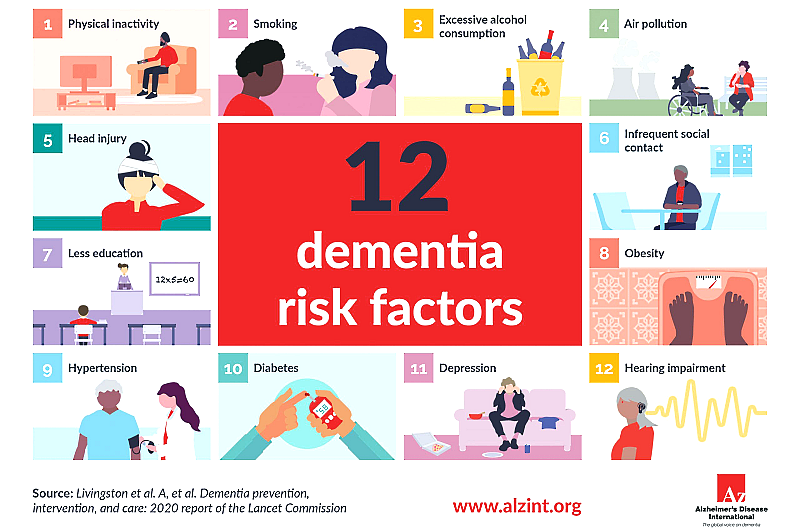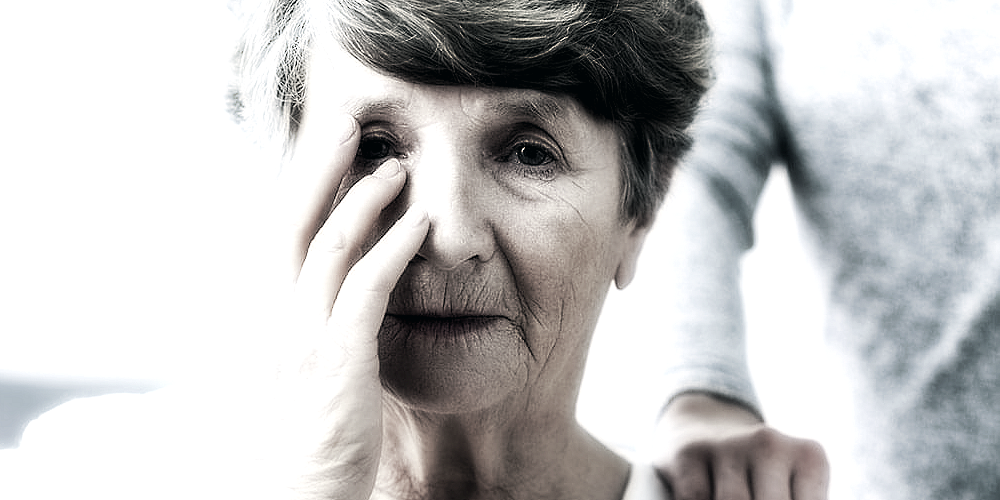Malaysia as a nation is over 60 years old. And around 300,000 individuals, or 8.7% of the the country’s population aged 60 and above, live with dementia.
Malaysia has not collected official data on individuals developing dementia earlier in life — as in their 30s or in childhood. This has fed a mistaken belief that only older adults can develop dementia.
Yes, getting older increases our risk of developing dementia, but that is not a normal part of ageing.
We are an ageing nation with a high prevalence of dementia risk factors. This, along with the neurological impact of Long Covid, are red flags warning us about a potential dementia-related crisis.
The crisis will not only affect our personal well-being but also have ramifications for society, economic productivity and health service utilisation.
On the bright side, strong evidence suggests that up to 40% of dementia cases worldwide could be prevented or delayed. The key lies in healthy lifestyles and supportive environments at various stages of life.
There are 12 modifiable risk factors associated with dementia: physical activity, smoking, excessive alcohol consumption, air pollution, head injury, infrequent social contact, less education, obesity, hypertension, diabetes, depression, and hearing impairment.
By taking proactive measures, we can minimise those risks while enhancing our brain health and overall well-being.
Typically, dementia first appears as an impairment of high-level cognitive function.
“Cognitive reserve” is the reserve of thinking abilities that we develop during our lifetime. This reserve protects us against losses that could occur through ageing, disease and brain injury.
By developing resilience, we have more reserve to call on in older age.
This also means that we differ from one another in our ability to cope with changes resulting from ageing, disease or brain injury.
The evidence that lifetime experiences help build cognitive reserve comes from the studies of large groups of people over long periods of time.
Life experiences may reduce the risk of Alzheimer’s disease by 35% to 40%.
The brain changes seen with the disease may still occur, but people with resilience from lifetime experiences cope better and may never be diagnosed because they do not present any symptom.
As a nation, how are Malaysians doing on these modifiable risk factors?
Individuals with less education early on in life are at a higher risk of reducing their cognitive reserve.
Although most children and young people in Malaysia receive formal and informal education, approximately 5% have not received any formal education and a staggering 18% dropped out before completing Form Five. The closure of schools during the Covid-19 pandemic has also disrupted the children’s educational progress.
In mid-life, the risk factors for dementia include obesity, hypertension, hearing impairment, alcohol consumption, and traumatic brain injury.
Obesity is prevalent among adults — one in two is overweight or obese — a trend that often begins during adolescence. One in three adolescents struggles with being overweight or obese.
Obesity is closely linked to two risk factors for dementia — hypertension and diabetes. Three in ten adults, or 6.4 million Malaysians, have hypertension.
Negative attitudes and societal stigma around weight issues can erode self-esteem and confidence, potentially leading to depression and isolation.
These factors have present-day consequences but could also increase the risk of dementia later in life.

There are 7.6% of Malaysians with hearing difficulties. Hearing loss contributes to 8% of dementia cases worldwide; mid-life hearing loss is a major risk factor.
Hearing loss can cause the ageing brain to shrink faster. It reduces auditory access to intellectual stimulation and social communication.
The cognitive reserve is depleted in an impoverished listening environment. As there is a fixed capacity for many general cognitive operations, listening difficulty decreases the cognitive resources that are available for other activities.
For most people, verbal and emotional information in speech is a critical mediator of complex social interactions. Less access to that mediator reduces the quality of social interactions.
Poor social interactions are a risk factor for dementia that emerges in later life, with a similar risk as smoking and inactivity.
Older adults with hearing loss have been found to be 47% more likely to have depressive symptoms, compared with peers without hearing loss.
Depression, particularly in later life (over 65) is linked to increased risk of dementia and could be a contributing factor in up to 4% of all persons living with dementia worldwide.
A 41-year study of 1.4 million Danes found that dementia risk more than doubled for both men and women with diagnosed depression.
In the specific case of diagnosed depression, contrary to the overall risk pattern, dementia risk was higher for men than women. And, dementia risk persisted whether depression was diagnosed in early, middle, or late life.
This highlights the importance of mental health and the vital need to take depression seriously.
Harmful alcohol consumption contributes to dementia risks.
Half of the 11.8% Malaysians who drink alcohol consumes six or more alcoholic drinks in one sitting, and one in ten is a heavy episodic drinker engaging in weekly consumption.
Excessive alcohol consumption contributes to road accidents involving 17.6% of male and 10.9% of female Malaysians, which may cause traumatic brain injury.
Traumatic brain injury could lead to dementia.
Malaysia records over 500,000 road traffic injuries each year. Among adolescents, physical attacks (14.8%), physical fights (16%), and domestic physical abuse (7.5%) can cause traumatic brain injury; thus these constitute another cause for concern.
Physical trauma also negatively affects mental well-being, including depression, a risk factor for dementia in later life as discussed earlier.
Over 90% of adolescents and adults have unhealthy dietary habits characterised by eating too little of fresh fruit and vegetables and drinking an excess of sugary carbonated beverages.
Diabetes, a risk factor for dementia, is prevalent among one in five Malaysians above 18 years, with approximately 3.9 million individuals affected.
We Malaysians are generally physically inactive throughout our lives. Nearly 60% of individuals aged 75 and above are physically inactive. While one in four adults above 16 years of age leads a physically inactive lifestyle, a staggering 80% of adolescents do not engage much in physical activity, and around 66% have a sedentary lifestyle.
In all age groups, there is a worrying prevalence of mental health issues.
Prior to the Covid-19 pandemic, approximately half a million adults had depression, and one in ten adults over 60 years old reported being depressed.
About 8% of children aged 5 to 15 experience mental health problems, and one in four teenagers experiences depression.
Furthermore, 41% of young persons have experienced verbal abuse at home, and 8.6% have been victims of bullying. The numbers are believed to have been higher during the pandemic.
These negative experiences often lead to social isolation, a risk factor for developing dementia.
As many as three in ten adults above 60 report poor social interactions.
Globally, smoking is linked with dementia in an estimated 5% of persons living with dementia. Thus, it is worrying that around 4.8 million Malaysians aged 15 and above are smokers. Of adults aged above 60 years, 10% smoke.
Furthermore, smoking raises the risk of diabetes, which means smokers are at increased risk of both diabetes and dementia.
The current significant rise in vaping by adolescents and youths in Malaysia adds to this concern.

In a study of over 18,000 US high school students, adolescents who smoked tobacco or used e-cigarettes self-reported higher levels of difficulty concentrating, remembering or making decisions.
This association was stronger the earlier the adolescent started vaping: those using e-cigarettes between the ages of eight and 13 were most likely to report cognitive complaints.
Contrary to what many Malaysians believe, vaping is not harmless.
Malaysia has “moderate” pollution levels that cause respiratory and cardiovascular diseases, leading to death.
The “moderate pollution levels” are no cause for complacency: long-term exposure to air pollution is linked with a risk of developing dementia, as highlighted in a prominent Lancet study.
While it may seem that Malaysians are not the healthiest people, there is hope. We can take action at every stage of life to prevent and delay cognitive decline.
These interventions include regular physical exercise, a healthy diet, moderate alcohol consumption (among those who drink), and not smoking.
Engaging in intellectually stimulating activities such as learning languages can help maintain cognitive abilities and promote brain health.
Active participation in social activities like spending time with family and friends, joining community groups, and having support networks is crucial for overall brain and mental health.
At the policy level, we must ensure that every child in Malaysia has access to quality education.
Lifelong learning, like the University of the Third Age Malaysia that facilitates and supports older persons in learning for leisure that benefits health and well-being, could be expanded and made more widely affordable and accessible.
Hearing loss, a very significant risk factor, requires public health preventive measures and screening throughout the life course, as well as enabling affordable access to hearing aids, as required by lower-income groups.
Social support is equally important in encouraging the acceptance and habitual use of hearing aids.
Improving air quality needs more effective interventions, especially in our cities and peri-urban areas. One major measure would be to reduce vehicle pollution by improving public transport efficiency, coverage and first and last mile connectivity.
This initiative will also have significant impact on all other non-communicable diseases.
Another is to reduce industrial pollution and improve municipal waste management.
Yet another is to promote urban gardening.
It is time for health promotion initiatives to integrate messages about the healthy brain, for example, “what is good for the heart is good for the brain.”
For a healthier Malaysia, we need to adopt a comprehensive social determinants of health framework to reduce inequalities, and promote health and social equity.
Many studies suggest that the social determinants of health account for 30% to 55% of health outcomes.
Women are at a higher overall risk of developing dementia, and are also more profoundly affected by it.
It is crucial therefore to analyse risks and plan responses through the gender lens.
We now understand that dementia risk factors are interconnected and modifiable. These risks start in childhood, persist and accumulate throughout life.
For Malaysians at the individual and family level and for government at all levels, these risk factors are of enormous public health significance.
Let’s embrace the campaign theme for World Alzheimer’s Month 2023: ”Never too early, never too late”.
The theme is an apt reminder to all Malaysians: reducing dementia risk is a lifelong pursuit — we must start very early in life.
(Sharifah Tahir is Care Partner, Teepa Snow Positive Approach to Care, and Certified Independent Consultant and Trainer, Founder of UMI-UniquelyMeInitiatives; Yuenwah San is Co-Founder-Member of OKU Rights Matter Project, and Disability Rights Activist-Care Partner; Datuk Dr. Amar-Singh HSS is Consultant Paediatrician and Child-Disability Activist.)
ADVERTISEMENT
ADVERTISEMENT




































